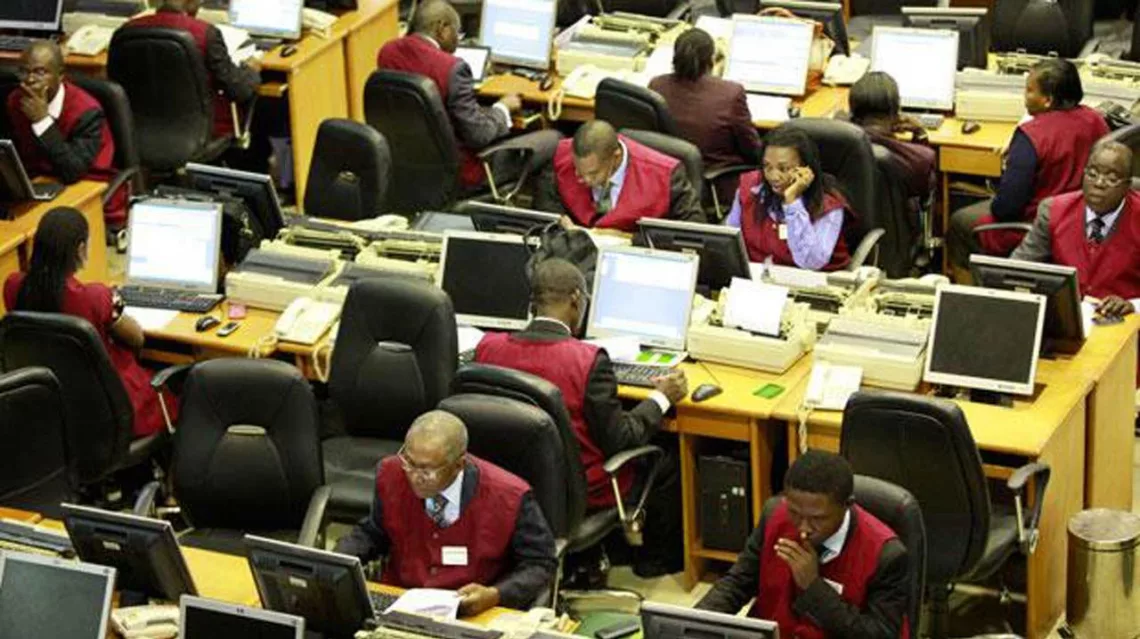The quality and quantity of investments in any economy are pivotal to its health economic and social health. However, when returns on investments are being held in any form, there is usually the propensity to hold back investment, which is in turn, bad for investment and the economy at large.
In this case, the disincentive is the growing volume of unclaimed dividends. As of 1999, the value of unclaimed dividends as released by the Securities and Exchange Commission (SEC) was N2.09 billion. That rose from N5.1 billion to N6b between 2002 and 2004. In 2005, the unclaimed dividends increased to N6.4b. At the end of 2008, it stood at N17.9bn.
To put things into perspective, within the period of nine years, between 1999 and 2008, the figure rose by 756.46 per cent, resulting in a yearly average of 84.05 per cent.
The SEC quarterly report put the value of unclaimed dividends as of December 2010 at N37billion. The figure shot up to N52.2billion in 2011, and grew one year later to N60billion (as of December 2012). By 2013, it was already N60.94billion.
It rose steadily to N80b in 2014. At the end of September 2015, the unclaimed dividend stood at N90billion.
By the end of the 2016 financial year, the value had increased to N100billion, and N120billion in 2018. As of 2019, it stood at N158.44billion.
As of date, unclaimed dividends have risen to N190 billion. There are industry revelations that over 300, 000 shareholders of 10 blue-chip firms, despite a need for additional income, have failed to claim their dividends in the last five years due to apathy arising from inflation and bureaucratic processes. Others may be unaware of the fact that they have unclaimed dividends.
Chat with a few persons who have investments on the NGX admit that the local currency has lost value, hence the lack of incentive to make claims of amounts as little as N15,000 in a dividend payout. This, according to them, is coupled with the fact that the process of claiming dividends is laced with bureaucracy. One shareholder, Andrew Alade, said, “You cannot just walk up to a counter and tell a receptionist that you want to claim your dividend. It is usually followed by many documents to prove you are the owner of the dividend.”
Topping the list are FBN Holdings, Nigerian Breweries, UAC, Nestle Plc, Dangote Cement, Total Plc, Unilever, Okomu Oil, and Cutix.
NATIONAL ECONOMY survey showed that the rising unclaimed trend of dividends is due to multiple subscriptions by investors.
Multiple subscriptions happen when investors subscribe to the same public offer with multiple names. Many investors are no more interested in regularising their shareholding accounts for conversion to the e-Dividend mode of payment.
Director general of the Securities and Exchange Commission (SEC) , Lamido Yuguda, blamed identity management for the significant amount of unclaimed dividends in the capital market which has now reached N190 billion.
Speaking at a post Capital Market Committee (CMC) press briefing Yuguda said unclaimed dividends are a very serious problem because of several issues like identification issues, and multiple subscriptions, and also because a lot of companies have changed their name.
He said, “The issue of unclaimed dividends, why is it happening? Unclaimed dividends have become a very serious problem in our country because we have issues with identity management within the capital market. We have issues with multiple subscriptions.
“People were using different names to subscribe to share offerings. We had situations where not information was captured about individual subscribers. Then a lot companies changed their names. We have had legacy issues that have aggravated the problem of unclaimed dividends. But these are issues trying to resolve with the introduction of the electronic dividend payment.”
He also said the electronic dividend portal has been under some kind of reform.
“The committee on the electronic dividend mandate as well as NIBSS have been working to get the portal to perform better and become more user friendly so that we can substantially increase the investor experience in terms of uploading their details and also get this issue of unclaimed dividends significantly reduced.
“We are now tightening our Know Your Customers (KYC) requirements so that all information needed will be fully captured and these unclaimed dividends will be a thing of the past,” he said.
A glance at the unclaimed dividend list of companies quoted on the Nigerian Exchange Limited (NGX) across sectors, since the global financial crisis of 2009 showed that Total Plc’s list has 9,750 shareholders in its unclaimed dividend list, while FBN Holdings list is made up of 255,486 shareholders.
For Nestle Plc, its unclaimed dividend list has names of 17,206 shareholders, while Nigerian Breweries Plc, has 100,000 shareholders on its list. Dangote Cement’s unclaimed dividends outstanding as of December 31,2020, stood at N4.0b compared to N3.5b as of December 31, 2019.
Unilever has 7,050 shareholders covering 282 pages, while Okomu Oil and Cutix constitute 4,873, and 7,457 shareholders respectively.
UAC’s unclaimed dividend list stood at 3, 331. For Julius Berger and Dangote Sugar Refinery, 2,173 and 10, 279 shareholders made up their unclaimed dividends’ list. Guinness Nigeria Plc., and GlaxoSmithKline list is made up of 45, 324 and 2, 835 shareholders respectively.
The Nigeria Exchange Limited (NGX) has a list of trading licence-holder firms that comply with minimum operating standards. Though they are listed by the NGX, the regulator does not guarantee 100 percent protection of investment in the hands of the brokers.
When a shareholder for any reason does not claim a dividend, it gives rise to the issue of unclaimed dividends. The CAMA 1990 (revised 2020) refers to “unclaimed dividends” as dividends not claimed within six months after a declaration, and are returned to the company, from where the investors can make claims up till, but not later than 12 years. The federal government had proclaimed that any dividend not claimed after 12 years becomes statute-barred and will be forfeited.
In 2020, the federal government, apparently in dire need of cheap funds to finance its huge fiscal deficit and to mitigate further economic crisis arising from the COVID-19 pandemic had, in a section of the 2020 Finance Act, proposed the establishment of a trust fund where unclaimed dividends would be ploughed into.
As unclaimed dividends grow, the SEC has also ascertained the quantum of unclaimed dividends of publicly traded companies that fall within the categories eligible to be borrowed by the federal government through the Unclaimed Dividend Trust Fund, which is being managed by the SEC and the Debt Management Office.
According to the SEC, the 2021 Finance Act mandates that all unclaimed dividends between the ages of 6 and 12 years be transferred to the Unclaimed Funds Trust Fund established for the purpose of borrowing by the federal government to support the 2021 appropriation.
But the policy of the federal government does not go down well with many stakeholders.
A stockbroker, Moses Akuba, said the government’s move is not popular because it has not been exemplary in the management of public funds, just as it is a wrong decision to keep such “financial windfall” in government’s care.
He said the best thing to do is to establish a trust fund that will be managed by an independent body other than the government in such a way that the claimants to the unclaimed dividends can collect their money whenever they are alerted.
As if in support, economic affairs analyst, Paul Igbrude, said that unclaimed dividend belongs to the company involved, and not the government. He added that dividend is purely a private sector affair, and the government should only provide an enabling environment for the real sector to survive and operate.
Recall that the president of the New Dimension Shareholders Association, Patrick Ajudua, described the Unclaimed Dividend Trust Fund (UDTF) as a disincentive to investment, stating that shareholders will continue to condemn its establishment.
“UDTF is against the interest of shareholders; it is a vehicle through which unclaimed dividends will go unaccounted and be subjected to abuse. Rather, we have advocated that such money be returned to companies that declared them to generate more returns to shareholders,” he said.
He said, “We have challenged the legality of such fund; the composition of the trustees; the role of the DMO and the custody of the fund. We will continue to make our reasons prevail and to exploit available legal means to seek justice, as well as ensure that our unclaimed dividend is not misappropriated against the wish of the beneficiaries.”
But not all stakeholders have voiced dissent against the policy. The Chief Executive Officer of Cowry Asset Management, Johnson Chukwu, said that the transfer of unclaimed dividends was codified in the Finance Act, which stipulates that a trust account should be managed by the DMO and the SEC.
Chukwu also allayed fears of a possible government hijack of the fund, stating that if the government has to borrow money from there, it will do it through an instrument, and cannot default in payment.
He pointed out that unclaimed dividends are beneficial to shareholders, as they would allow them to receive both the principal amount and income that accrue therefrom.
“Interest will accrue on the fund and if any shareholder succeeds in confirming ownership of the dividend will get, not only the principal amount but also income that accrues to it as provided by the Finance Act.
“It is not all ‘tale of woes.’ Before, shareholders got only the principal amount, but now, they will also receive interest on it. The capital market community, both the SEC, NSE, and operators have taken large measures to eliminate this, but now that dividends are created in such a way that they go directly into the account without dividends’ warrant, it is expected that the unclaimed dividends will reduce.
“This means that with the elimination of dividends’ warrant in the capital market, there is no likelihood that a lot more funds would flow into the unclaimed accounts. This trust fund was legislated and put up in the Finance Act and signed into law. To reverse it, the segment of that law has to be repealed.”





